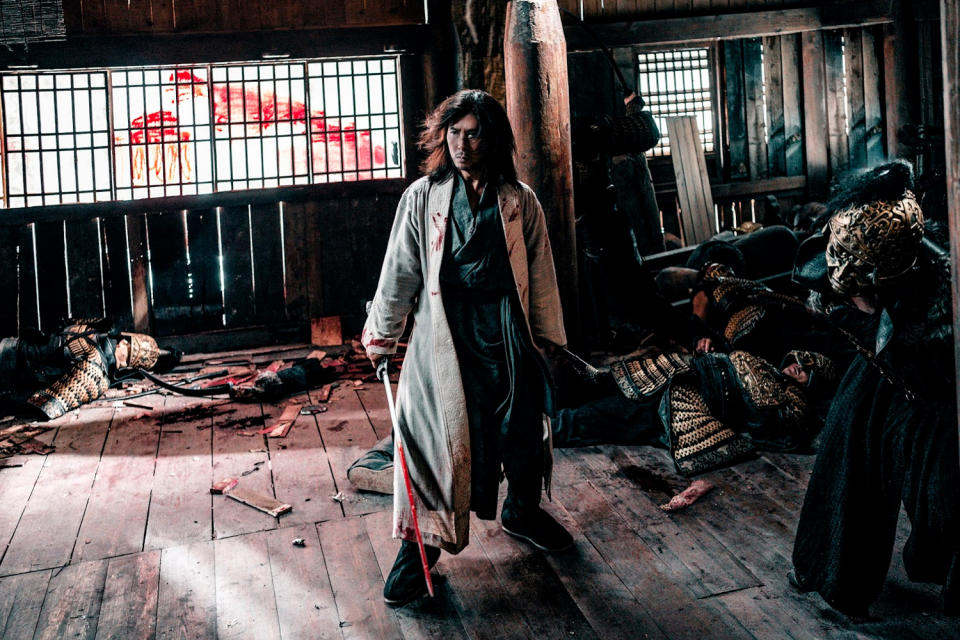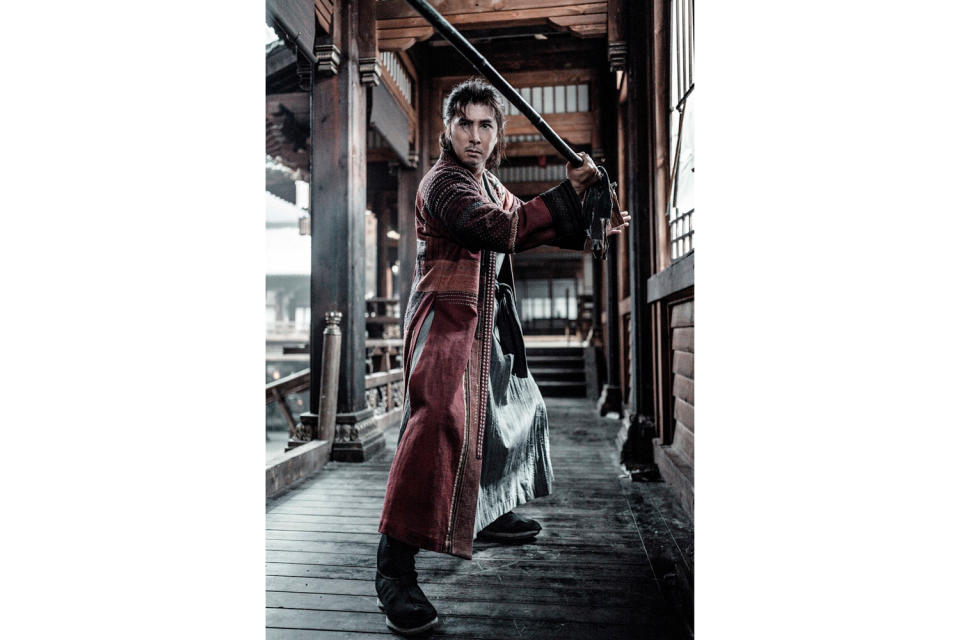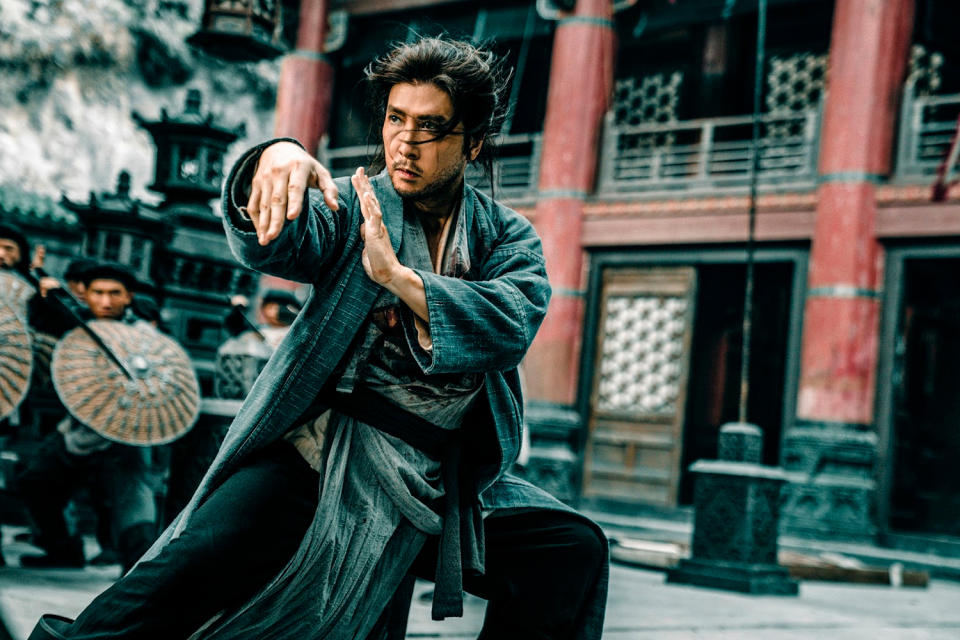Donnie Yen's 'Sakra' Continues His Martial Arts Journey
- Oops!Something went wrong.Please try again later.
- Oops!Something went wrong.Please try again later.
- Oops!Something went wrong.Please try again later.
Donnie Yen, the legendary Hong Kong actor and martial artist, has won the hearts of audiences worldwide with his electrifying performances in films such as the Ip Man series, Rogue One: A Star Wars Story, Crouching Tiger, Hidden Dragon: Sword of Destiny, and most recently John Wick: Chapter 4. With a career spanning over three decades, Yen's contributions to the world of martial arts cinema have been nothing short of astounding.
Showing no signs of slowing down, aside from his career in the movie industry, Yen finds time to maintain his martial arts practice, spend time with his family, take part in philanthropic work, and even launch his own eyewear brand, DonniEYE around his love for sunglasses. Returning to the world of traditional wuxia "martial heroes" cinema, Donnie Yen's latest film Sakra sees the storied Hong Kong superstar not only in a starring role but also directing and producing the project.
Adapted from the important wuxia novel Demi-Gods and Semi-Devils written by illustrious novelist and essayist Jin Yong, Sakra sees Yen deliver another electrifying performance in a mix that highlights his unparalleled skills and emotion underpinned by a classic Chinese masterpiece of martial arts. In an exclusive interview, Donnie Yen shared his insights into the making of Sakra, his approach to portraying a wuxia hero, and offers a rare glimpse into the mind of a martial arts master.
Catch Hypebeast's exclusive interview with Donnie Yen below and watch Sakra in select theaters and on digital now.
What drew you to the original novel wuxia novel Demi-Gods and Semi-Devils by Jin Yong?
Well, I think most Chinese have read Jin Yong's novels and probably watched an adaptation in their life. So it's part of our culture, if you think of wuxia it's really Jin Yong's wuxia world.
For Sakra, I just felt that it was time to do something different, especially for the Western audience. For me, the biggest task was to make a modern-day wuxia movie that can introduce that world to an unfamiliar audience, for those that have probably never seen a wuxia movie. When you think of wuxia, you can only think of cliche images of people flying around, so-called wire-fu introduced to the Western world. I wanted to have my own take on it. That's why I took on the project.
Sakra is rooted in Chinese mythology - how did you draw on this history to inform your portrayal of Qiao Feng?
Starting with Jin Yong's novel, I was drawn to Qiao Feng as a character that I can see myself portraying, understanding where he's coming from. I used the mythology of Qiao Feng and did research on past expressions of the character in media. Trying my best to combine the genius and classic elements but at the same time have a modern take on how I see the character and what he wants to say.
But that wasn't the hardest part. The hardest part was just trying to put everything into a two-hour movie. That's the hardest. It's almost impossible to tell a Jin Yong story in just a two-hour movie.
How do you balance the physical demands of wuxia performances with the emotional and dramatic aspects of the genre?
The Donnie Yen style will always be a mix of emotional storytelling with martial arts elements. Without it, I don't truly feel you do justice to the wuxia genre because it's heading toward such a sci-fi direction based on its commercial potential.
With Sakra I wanted to bring it back to what it back to martial artists. The heroes in all wuxia are martial artists. I could make a straightforward story but then it's not really wuxia, you have to have a solid martial arts display. The balance is important but if people get caught in the story, I said to myself, "that's okay," as long as the film reintroduces wuxia to the world. In my perspective, this is what wuxia is all about.



Wuxia films often involve elaborate fight scenes - can you talk about your approach to creating and executing these action sequences?
Honestly, the most challenging thing for this story is the 18 Dragon Palm scene. So how do you shoot an 18 Dragon Palm without overdoing it with CGI, which could easily happen. Without going crazy with the CGI throughout the film, I wanted to stay grounded and make the audience feel that impact and feel that realism, while at the same time staying in that overdramatic fantasy world.
Many people consider you to be one of the greatest wuxia actors of all time - how are your performances in wuxia films different from your performances in other action films?
I think character-wise, Qiao Feng is probably my favorite. I wished that I could have displayed more of his character, it was really difficult to introduce the entirety of his character within the two hours of the film.
This is why I'm hoping that I can make Part Two, so the way I tell the story is that I have given you a glimpse of the world and introduced you to the character in the middle of his journey. But in my mind, I have already crafted a story where I can reveal his true nature. This is definitely one of my favorites, this is something that I want to do, it just has everything I look for in a character.
Throughout your career you worked on numerous wuxia films, why do you think the wuxia genre has endured for so long and has found appeal worldwide?
For films, it has really only appealed to global audiences for the last two decades. But for the Chinese, it goes back to 1000 years. So there's a reason why, because its storytelling is so rich, it's very fascinating, you get mesmerized by how brilliantly these novelists have put together some real historical elements and created believable characters.

